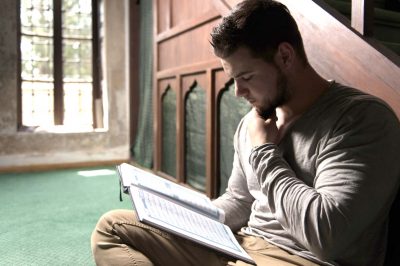Modern Psychologists say that wisdom “involves an integration of knowledge, experience, and deep understanding that incorporates tolerance for the uncertainties of life as well as its ups and downs. There’s an awareness of how things play out over time, and it confers a sense of balance.”
One must demonstrate knowledge, understanding, patience, and moderation in all things when trying to attain wisdom. In our times, when we react with minimal knowledge and no understanding, often going to extremes, wisdom is valued little and found far less.
I must confess that I find myself falling into the category of those who are in desperate need of wisdom. I thought by this point in my life, I would have this wisdom thing mastered. But I fail.
It can be defeating, but if we look at the one who faced every situation with wisdom, we can try to model ourselves not on those who participate in Facebook flame wars, or knee jerk reactions to headlines, or even bickering: but we can model ourselves on the highest standard- the standard of the Prophet Muhammad (peace be upon him).
Wisdom when Being Attacked
When we are attacked with personal insults or even faced with insults about our faith, it can be a crucial moment to have wisdom. It is also the most difficult time to have wisdom. I have failed this test many times I am ashamed to say.
But we can always look to the example of the Messenger (peace be upon him) and try better to emulate him. One story I hold near to my heart when facing harsh critics was when the Prophet visited the village of Ta’if to invite its inhabitants to Islam.
Not only did the people of Ta’if reject him and kick him out of their town, they also humiliated him by throwing stones at him, making him bleed.
Upon this humiliation, Angel Gabriel came to him and said:
“Allah has heard what your people say to you and how they reject you. He has ordered the angels of the mountains to obey whatever you tell them to do.”
The angel of the mountains called him, greeted him and said:
“Send me to do what you wish. If you wish, I will crush them between the two mountains of Makkah.”
The Prophet responded:
“Rather, I hope that Allah will bring forth from their loins those who will worship Allah alone and not associate anything with Him.” (Al-Bukhari)
Wisdom in this case was mercy, letting go of ego, and keeping the bigger picture in mind. I am completely amazed by the strength of the Prophet (peace be upon him) and his willingness to have patience with the people who were attacking him in hopes that their children would one day worship Allah alone.
Wisdom when Dealing with Bickering
During the Prophet Muhammad’s life, even prior to revelation from Allah Almighty, he dealt with his people with wisdom. He demonstrated this while the tribes of Quraysh were rebuilding the Ka’bah:
“The tribes of Quraysh reached the point where the Black Stone was to be placed in its designated site. A dispute erupted between the various tribes of Quraysh. [… The Prophet] asked them to bring a garment and place it on the ground. He placed the Black Stone on it. He then requested that each of the leaders of Quraysh hold the garment from one side and all participate in lifting the Black Stone, moving it to its designated area. […].” (Tafsir ibn Kathir)
In this instance, the Prophet Muhammad saw that each man needed to feel like a contributing member of this project. He didn’t argue with them. He didn’t automatically take sides. And he did not even show favoritism to those closest to him. Instead, he listened to all sides and met the needs of those seeking his advice. And this wisdom avoided much blood shed.
Taking sides is sometimes the first reaction when dealing with people who seek our advice when bickering. But often that is not what is needed. I have seen all too often that problems escalate quickly when all parties are not respected and listened to.
Wisdom when Retaliation can be Taken
Prophet Muhammad taught us that real wisdom means that peace should be sought until those who wish to fight you leave you no other option but to defend yourself and your right to worship Allah (SWT) alone. But even then, when the fight is brought to you, follows you, and demands that you defend yourself; the Prophet showed us how to always keep wisdom as our weapon and armor.
The example of the conquest of Makkah stands out in this case. When the Prophet (peace be upon him) returned to Makkah in victory and having the upper hand after years of persecution and war at the hand of the Quraysh, he did not go back to the city looking for revenge.
He went back victorious, yes. But revenge was not taken. Instead wisdom led him to offer forgiveness, peace, and a du’a:
‘O Allah, Guide my people!’
In the conquest of Makkah, the Prophet’s wisdom, by the will of Allah, guided him to understand that he had a great opportunity. A chance to turn warring peoples into a united community. Wisdom here meant peace and that justice is not about vengeance. And today, the descendants of these people are Muslims.
These are only three of many instances where the Prophet (peace be upon him) showed patience, knowledge, experience, moderation, mercy, restraint as a part of his wisdom. In our lives, we will probably not face obstacles like the Prophet faced. But we can pick up the wisdom he left behind.
The Prophet Muhammad (peace be upon him) taught us that:
“Wisdom is the lost property of the Believer, let him claim it wherever he finds it.” (At-Tirmidhi)
(From Discovering Islam’s archive.)


